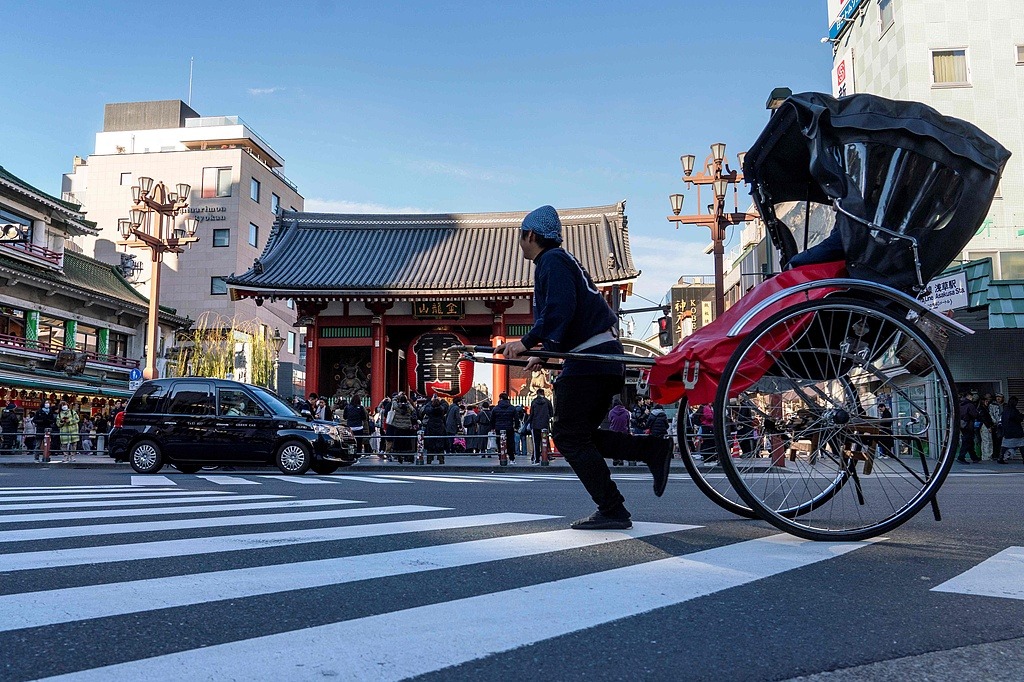Anti-Asian hostility in US needs to be addressed


The recent killing of an Asian-American woman, who was pushed in front of a subway train in New York City, has reinforced concerns about rising crime, including hate crimes, in the Asian community — an issue that China has called on the United States to address.
After the killing in January of Michelle Alyssa Go, police arrested a mentally ill homeless man, who has been charged with murder. Police were investigating whether racial bias might have been a factor in the killing.
Go's death occurred at a time of unease among Asians in the US about rising hostility. The atmosphere has been soured by conspiracy theories about the origins of COVID-19 and the rhetoric of former president Donald Trump, who dubbed it the "China virus".
Chinese Americans have become the targets of unprovoked aggression since the start of the pandemic.
The organization Stop AAPI Hate, which tracks hate and discrimination incidents against Asian Americans and Pacific Islanders in the US, documented more than 10,000 anti-Asian hate incidents between March 2020 and September last year. The state of New York's Hate Crimes Task Force reported that on New York subways, incidents targeting Asians more than doubled in 2021.
In a mass shooting in 2021, a Georgia man opened fire on beauty spas in Atlanta. Six Asian women were among the eight people killed in what the prosecution described as a hate crime.
In New York City, 61-year-old Yao Pan Ma, a Chinese immigrant, died on Dec 31, months after he was the victim of an unprovoked street attack.
"The pandemic is still continuing, so people are angry and frustrated and still blaming Asians for it," according to Russell Jeung, co-founder of Stop AAPI Hate.
"People are mourning, clearly upset, so they're directing all of that toward Asians. That's why we continue to see racism even in 2022: It's the long-term, historic racism that has just been unleashed," USA Today quoted him as saying.
Although mainstream US politicians have denounced the wave of anti-Asian assaults, a senior Beijing official has suggested that Washington's stance on China is feeding the xenophobia.
Foreign Ministry spokesman Wang Wenbin told a media briefing this month that the US should reflect deeply on and address the problem of systemic racial discrimination and safeguard the legitimate rights and interests of ethnic minorities, including people of Asian descent.
He said anti-Asian words and deeds in the United States were manifestations of systemic racial discrimination and reflected deep-seated problems in US society. However, he also singled out the so-called "China Initiative", a US Department of Justice program launched in 2018 against Chinese entities and individuals in order to counter alleged Chinese economic espionage.
The initiative, which the Department of Justice said on Wednesday will end, has been widely criticized within the US, particularly among academics, for heightening public suspicion and antipathy toward Asians in general.
An anonymous Chinese American, writing in The Diplomat of his experience as a US Attorney's Office employee, said: "The China Initiative is more based on racial stereotypes than actual legal work. For the DOJ, the China Initiative is nothing less than an excuse to justify violations of Asian Americans' constitutional rights."
The program, which targeted a range of academics and researchers based on their ethnicity, suffered a setback this month with the collapse of a high-profile prosecution of a Massachusetts Institute of Technology engineering professor who was accused of hiding his ties to China.
The case against Gang Chen, a professor, fell apart after a federal court heard that the professor's alleged omissions about ties to China were either not required to be disclosed or would not have had an impact on his academic funding.
Civil rights activists and academics said the Trump-era initiative had fostered suspicion of Asians, hindered research and contributed to a rising tide of anti-Asian sentiment.
A study co-authored by the University of Arizona found that over 50 percent of scientists of Chinese ancestry working in the United States, regardless of citizenship, feared that they were under surveillance by the government. Many of them were reconsidering their plans to stay in the US.
Scrapping the initiative will not wipe out deep-seated anti-Asian racism in the US. But it might at least show that US authorities are prepared to divorce themselves from the mindless abuse, hostility and aggression that so many have to suffer on a daily basis.
The author is a senior media consultant for China Daily UK.































